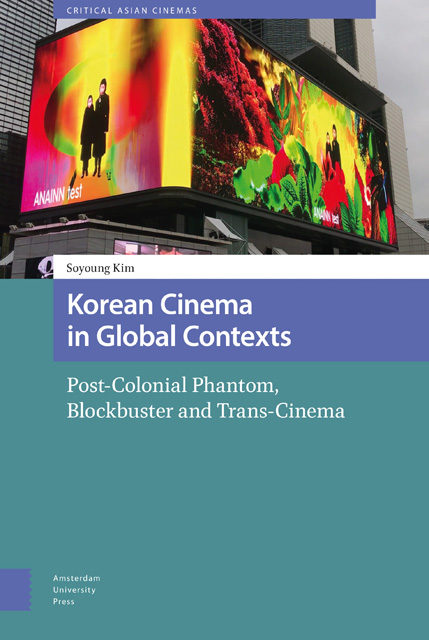7 - Inter-Asia Comparative Framework : Postcolonial Film Historiography in Taiwan and South Korea
Published online by Cambridge University Press: 16 November 2022
Summary
Abstract
This essay analyses how postcolonial historiography is inscribed in cinema. Two representative films from Taiwan and South Korea, The Puppet Master by Hou Hsiao‐Hsien and Chwihwaseon by Im Kwon-taek, are compared, not only to understand the working of decolonization in cinema but also to understand the impact and effects of colonial history. The notion of postcolonial film-making as an alternative construction of the archive is evoked to locate film practice in the intersecting spaces of repository, historiography, cinematic representation and social memory. The two films are cited as instances of illuminating retrospection on fractured pasts; the almost-invisible archive and the future are cinematically envisioned by suggesting a sustainable postcolonial episteme in the age of global spectatorship.
Keywords: archive, postcolonial film historiography, Hou Hsiao-hsien's The Puppet Master (1993), Im Kwon-taek's Chwihwaseon (2002)
As a prominent constituent of New Taiwan cinema, the films of Hou Hsiaohsien have illuminated the ways in which modern Taiwanese history can be re-encountered and postcolonial historiography is inscribed within film. The Puppet Master (1993) is Hou Hsiao-Hsien's first Taiwan-Japan co-production, a film which largely deals with the Japanese occupation era. It is well known as a part of Hou Hsiao-Hsien's Taiwan trilogy on Taiwanese modern history, which also includes A City of Sadness (1989) and Good Men, Good Women (1995). When he was asked about how he came to make such a trilogy, he stated that it was to interrogate the origin and the founding structure of Taiwan as a modern nation. The opening sequence of The Puppet Master deals with two beginnings: the onset of Japanese rule over Taiwan and the birth of a great puppeteer named Li Tien Lu. The juxtaposition of these two origins and their respective developments serves as one of narrative drives of the film. The double exposures and the interweaving of official and personal histories compose a complex and contradictory trajectory of the impact, effects and affects of colonial history. Dealing with the text, it will be useful to see what it means to look at the works of Hou Hsiao-hsien in a South Korean context as his films should offer a way in which the effects of Japanese colonialism in the region should be revisited.
- Type
- Chapter
- Information
- Korean Cinema in Global ContextsPost-Colonial Phantom, Blockbuster and Trans-Cinema, pp. 137 - 158Publisher: Amsterdam University PressPrint publication year: 2022



